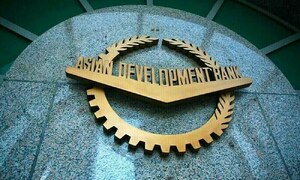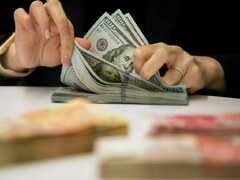Most US Treasuries prices slipped on Tuesday as higher stock prices for most of the day and news that some banks had asked to repay funds they accepted from the government during the financial crisis damped the bid for safe-haven government debt.
After rallying strongly on Monday, Wall Street conceded just a fraction of those gains in late trade on Tuesday as economists debated whether the beginning of the end might be at hand for the worst US recession in more than a half century.
"People traded off stocks," said Josh Stiles, senior bond strategist at IDEAglobal in New York. "There's real confusion about whether the stock market's gains over the last two months constitute a bear market bounce or not." Stiles said the "groupthink" on the stock market's advance since March 9 was that the gains added up to a bounce for a market that ultimately would head lower again.
But the stock market's ability to push higher for more than two months has posed a problem for bonds, Stiles said. "Bond traders realise they need a flight-to-safety trade to improve things in the bond market and they aren't getting it," he said. "A lot of bond people are positioned for the stock market to correct and yet stocks keep grinding higher."
On Tuesday, major stock index were higher for most of the day but two gave up a little ground in late trade. Meanwhile, benchmark 10-year notes fell 4/32, offering a yield of 3.25 percent, up considerably from an intraday low of 3.09 percent on Monday.
Also weighing on bond prices was news that several major banks that underwent government "stress tests" of their ability to withstand a severe economic downturn had asked to repay the tens of billions of dollars they had received under the Troubled Asset Relief Program (TARP). The repayment talk raised hopes that banks were in better financial shape, improving the prospects for a speedy economic rebound and damping demand for safe-haven government debt.
Bond fund management company Pacific Investment Management Co (PIMCO) told Reuters on Tuesday that US banks' new-found ability to sell debt that's not guaranteed by government and to tap equity markets may be a cue for investors to take a bit more risk in bonds of the strongest banks. Even weaker-than-expected US housing data for April could not lift longer-dated Treasuries into positive territory.
At an annualised 458,000, US housing starts were much weaker than the median forecast of 520,000 and fell short of even the most pessimistic forecast in a poll of Reuters economists. The 10-year Treasury yield stands at 3.25 percent and the 30-year yield is near 4.25 percent, Stiles noted. The 30-year bond was down 13/32 and yielding 4.21 percent, up two basis points.
BR100
15,085
Increased By
112.5 (0.75%)
BR30
44,012
Increased By
987.7 (2.3%)
KSE100
148,618
Increased By
1274.3 (0.86%)
KSE30
45,248
Increased By
370.7 (0.83%)





















Comments
Comments are closed.